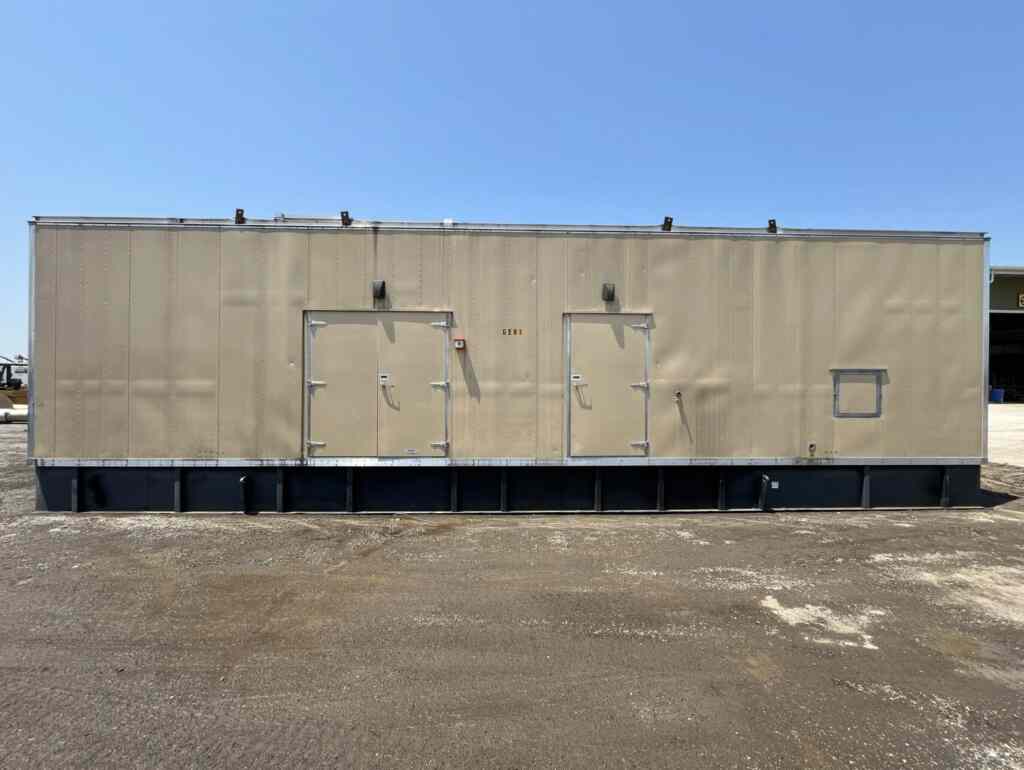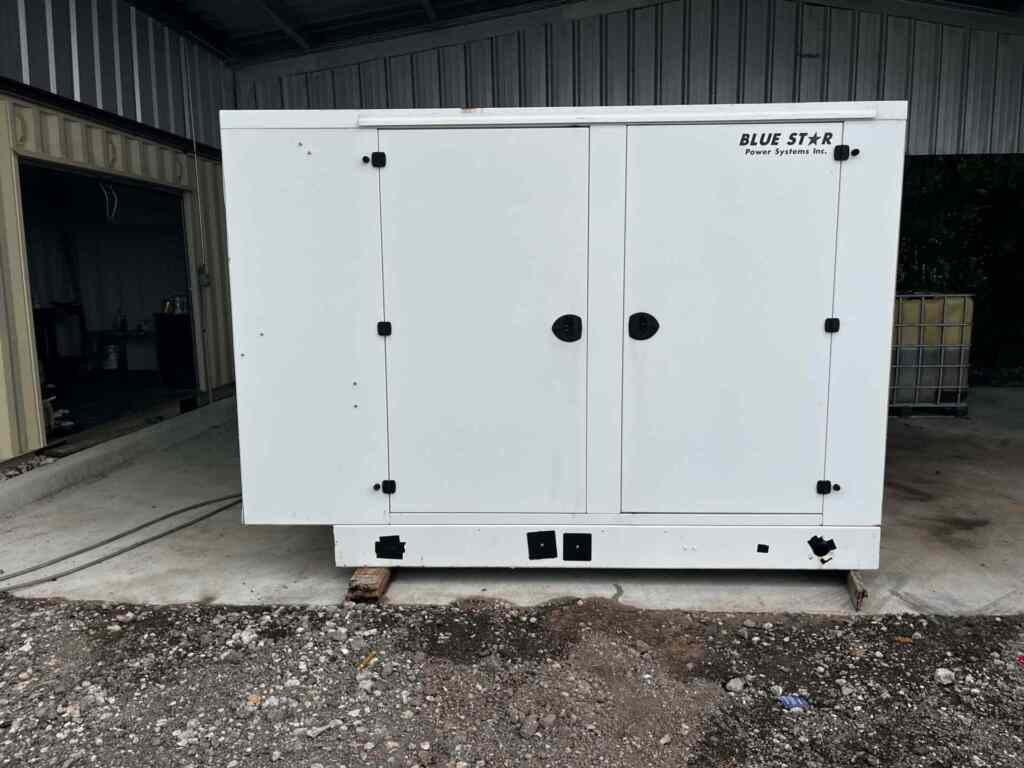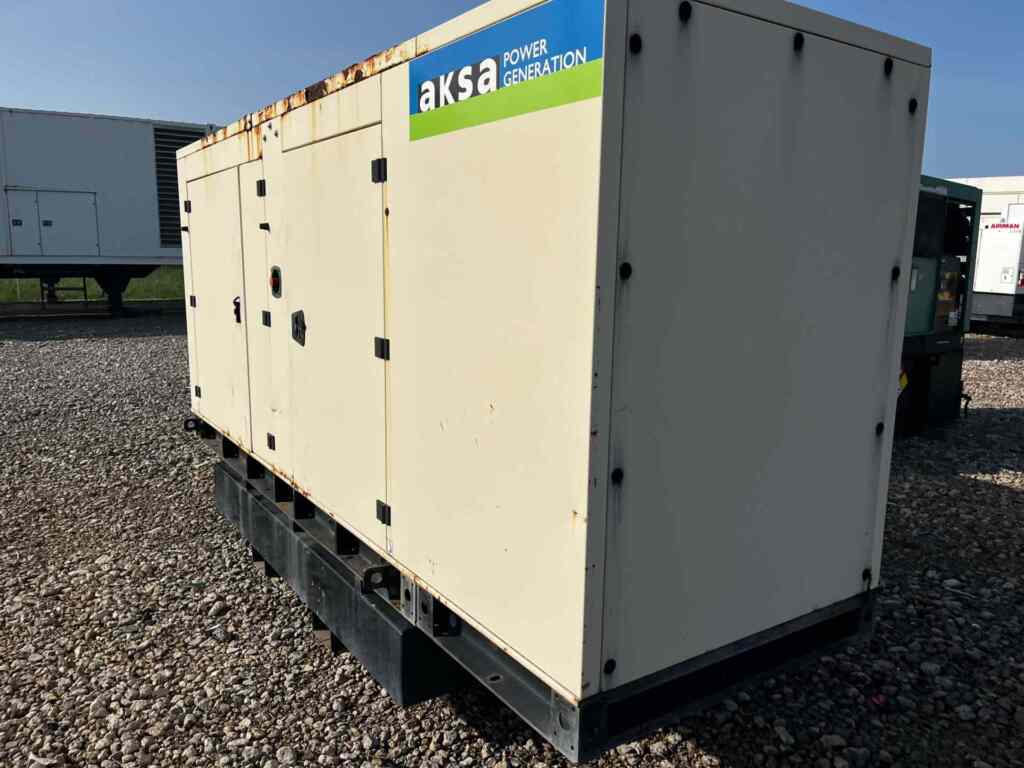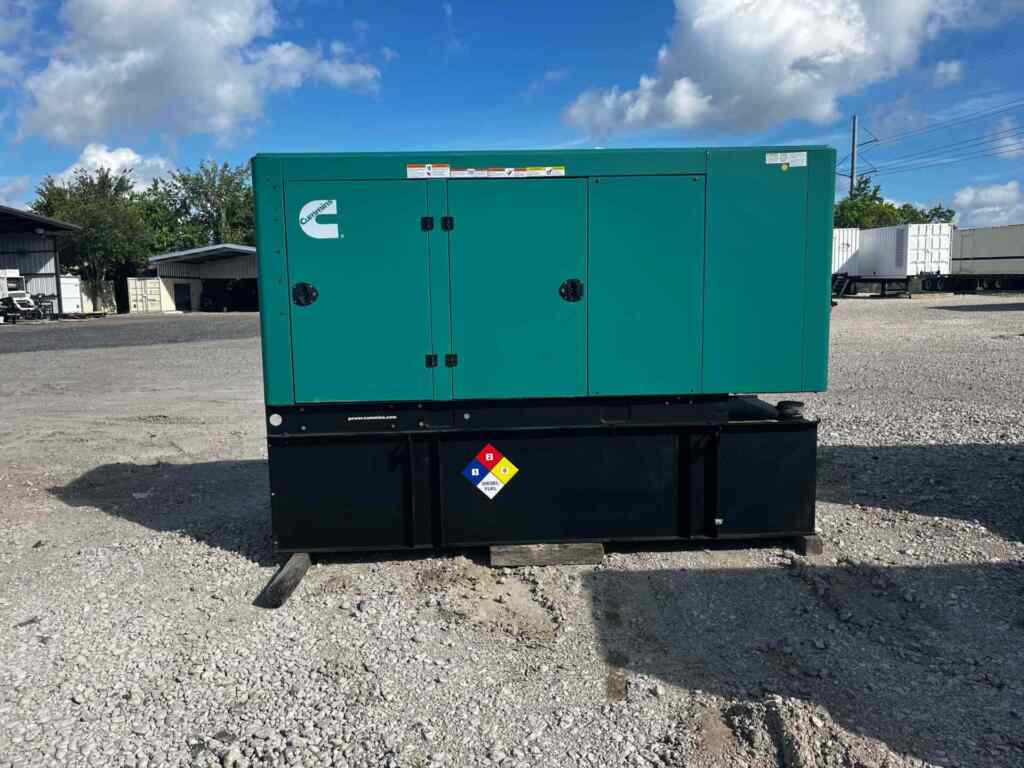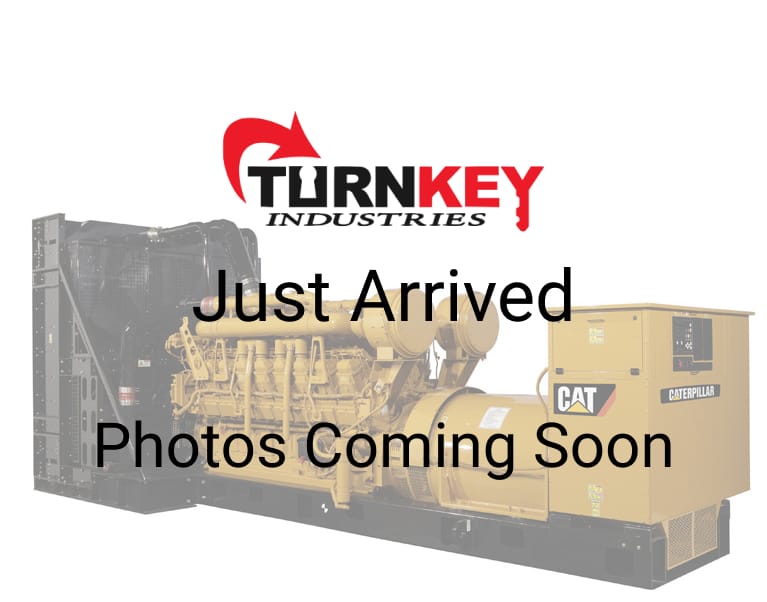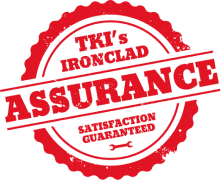Generators are similar to insurance policies in that they can provide you with peace of mind. Many business owners rest assured knowing their location can stay afloat during an emergency when they have generators, as they’re responsible for generating and distributing backup power during inconvenient situations.
However, the impact of not having a generator for your business can be just significant as its benefits. With most companies and organizations relying on electrical grids for energy, a minor interruption can result in major consequences.
Here are a few mishaps and misfortunes that can ensue when you don’t have a backup generator unit for your business.
Damaged Equipment
Wiring that connects equipment to a primary power source can become severely damaged during an outage or surge. This quick disconnect and spontaneous rush of energy once back online can fry a machine’s internal parts, foiling operations and possibly halting production.
A generator can provide standby power to your equipment, allowing no sudden change, disconnect, or rush of energy. Once the unit detects an inconsistent flow of power, it will activate its engine and become a temporary solution.
Unfortunately, damaged machinery takes a significant amount of time to repair and replace, potentially requiring unexpected costs that can set your business back.
Low Employee Productivity
When power outages or surges occur, technology and devices that rely on electrical power can be down for some time. Internal communication tools, assembly lines, and monitoring systems can all become unreliable until power restoration.
When this happens, employees are sometimes unable to fulfill roles and responsibilities. Not having a generator may lead to more instances where employee productivity is low because they can’t complete tasks that depend on electricity.
This can be a detrimental setback that affects multiple departments, teams, and workers. Having a generator as a safeguard for day-to-day production is essential because if your business goes days without power, your business growth can suffer tremendously.
Inadequate Customer Care
A generator should keep operations running smoothly to uphold the standard of work your customers and clients deserve. Unfortunately, the lack of technology can drastically impact inbound and outbound communications.
Imagine running a call center that specializes in the scheduling and delivery of essential medications for individuals with chronic illnesses. If you don’t have a backup generator and you suffer a power outage, you can expect significant challenges that inconvenience those depending on their medication.
Between long response times, missed emails, missed quotes, and what may seem like a general lack of attention, these patterns can result in unprofessional and inadequate customer service. Without a generator to keep these systems running smoothly, you risk patient health, ultimately garnering complaints that can end your business.
Compromises Employee Safety
While regulations can vary depending on the industry, many organizations have safeguards in place to maintain employee safety and security. A common mechanism in manufacturing and warehouses, a fail-safe system that automatically shuts off equipment during an emergency aims to protect employees from experiencing a serious injury.
When power outages occur, surges can damage equipment that operates these safeguard systems. Furthermore, security systems may also become affected, leaving employees vulnerable to thieves and other unauthorized guests once cameras, gates, alarms, and motion lights cease to work.
Is It Time To Purchase a Backup Generator?
Considering all potential consequences, you may find yourself questioning whether it’s time to purchase a generator for your business. Many companies don’t have the flexibility to replace damaged equipment consistently, sacrifice several production days, not communicate with customers, or jeopardize employee safety.
Depending on your industry, it may be crucial to invest in a high-quality standby generator as soon as you can. On the other hand, if you currently own a power unit and are looking to upgrade, consider these five signs that indicate it’s time for a revamp:
- Your generator has experienced significant wear and tear, resulting in costlier repairs over time.
- Your power unit is too small and can’t generate enough power to distribute to equipment.
- The unit consumes more fuel than necessary due to a loss in performance.
- Your power unit doesn’t generate consistent energy sources to provide power to equipment.
- You currently own outdated machinery that increases your carbon footprint.
Many businesses that operate close to high-wind, hurricane, or tornado-prone areas should also consider a backup generator. If your business requires offsite location work, how will these areas reliably work? Offsites would most likely wait for extended periods or until grids turn back on.
Digging sites and construction companies may need large amounts of power in isolated areas over several weeks, and, fortunately, a backup generator can be an invaluable resource in these circumstances.
Mistakes To Avoid When Buying a Generator
When considering a future generator purchase, it helps to take several aspects into account, such as budget, condition, needs, type of fuel required, and add-ons. There are also many mistakes to avoid when buying a generator, especially when looking into buying used equipment.
Usually, top brands or manufacturers come with great warranty programs that can cover mechanical faults. Used generator purchases should also come with a service record. A service record can show how often the previous owner had the generator inspected for maintenance, load testing, oil changes, filter changes, and more.
This is especially important as a well-maintained generator is key to ensuring mechanical issues are at a minimum. You never want to forget to schedule an inspection. While maintenance records are often accurate, it helps to have a second pair of eyes analyze and inspect a generator’s internal mechanisms for potential weaknesses that someone else missed.
Not having a generator for your business can impact more than its operations. Not having a generator within your organization can increase the risk of detrimental consequences that can harm your facility, from halting internal communication systems to compromising employee safety.
Fortunately, Turnkey Industries has the ideal equipment you need to keep your business up and running. We sell diesel generators used; however, our experts prioritize quality by cleaning, repairing, and load-bank testing units to ensure that they can provide uninterrupted energy through surges, outages, and other external factors.
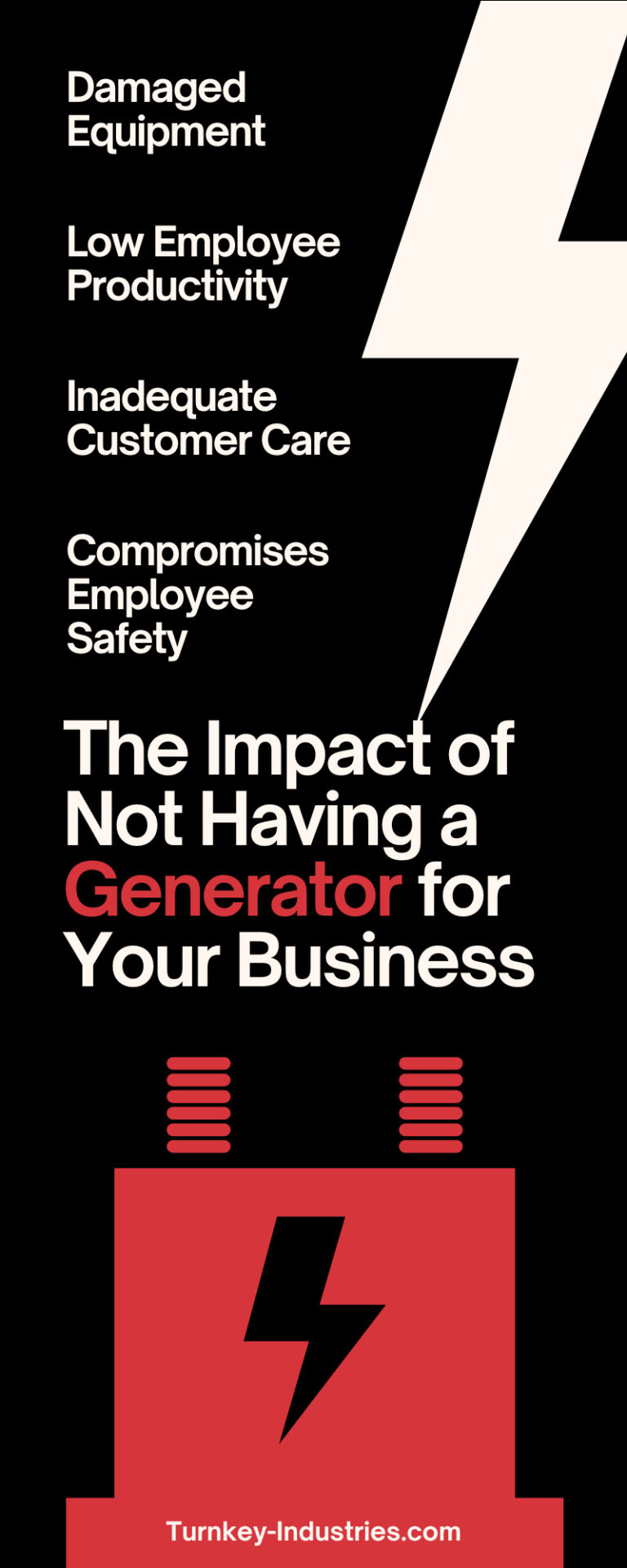
 Turnkey Industries offers a variety of high-capacity
Turnkey Industries offers a variety of high-capacity 